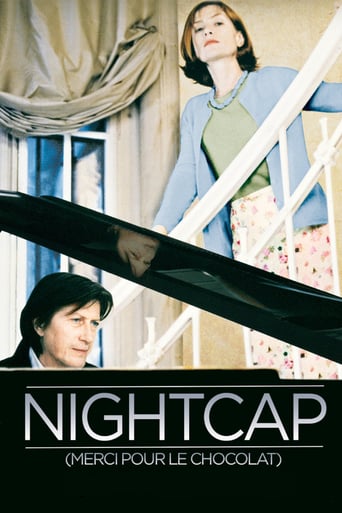

People are voting emotionally.
... View MoreWhile it doesn't offer any answers, it both thrills and makes you think.
... View MoreThe movie really just wants to entertain people.
... View MoreIt’s fine. It's literally the definition of a fine movie. You’ve seen it before, you know every beat and outcome before the characters even do. Only question is how much escapism you’re looking for.
... View MoreI think it is very interesting this movie is called a thriller. It is anything but thrilling.Most of the time you hear piano sounds. Then you hear piano sounds. Then some people talk about facts which do not concern anybody.Then again piano sounds.To be honest, this movie was the reason for me to register at IMDb, because I think this movie is one of those which humankind has to be warned of.Spoiler: By the way, the most action-like part happens when a can of hot chocolate is spilled.Also very interesting: The "actors". Yes, the quotes are intentional, as you can think, because they do not act. They play piano and do smalltalk, but it's not acting they do.I think before this movie I never left a cinema and felt angry. Really, this film made me angry. Angry for the time and money I spent on it.
... View MoreI mostly went to see "Merci pour le chocolat" because I had never seen a Claude Chabrol movie, so I have no basis of comparison with his other work. The veddy British subtitles called it "Night Cap" which is much less interesting and resonant of the movie's images than the title of the novel it's based on, "The Chocolate Web," which was written by Charlotte Armstrong, but seems very Ruth Rendellian.Isabelle Huppert of course is never uninteresting to watch, though this is the second movie in a row where the poor woman had to play a successful, middle-aged career woman with a serious problem, as in "The Piano Teacher (La Pianiste)." Hmm, do the French have a problem with such women, making them so twisted?The movie starts out like a family saga of family businesses and secrets; I even thought it was going to do for the chocolate industry what "Les Destinees sentimentales" did for the porcelain industry.But gradually the relationships come together into a mystery that doesn't quite pay off but gives a few horror chills in the process. (originally written 9/2/2002)
... View MoreAnna Mouglalis is HOT. And she's the main character. So why doesn't her name appear on the DVD box along with Jacques Dutronc and Isabelle Huppert? Don't they have enough already?I've seen other pictures of her on the Net and she doesn't look exactly like Liv Tyler, but in this movie, the way her hair is done and her lipstick applied, they could be twins separated at birth.Oh, and what about the movie?Well, I saw it with four other people. In keeping with the theme of the movie, which has a lot to do with hot chocolate and getting a good night's sleep, two of the four fell asleep after the first twenty minutes or so. The other person and I (both Francophiles, and I now a convinced Mouglalis-o-phile), managed to watch the whole thing, which wasn't easy, because, well....the acting kind of sucked, the people were all boring and unlikable, and the plot was salvaged from the reject bins behind the office where they write Murder, She Wrote, episodes of Columbo, and those Masterpiece Theater episodes set in the 1920's. Boring boring boring. And contrived. And unbelievable. Too many coincidences, and once you see the movie, you'll find it hard to believe that main character A married main character B, and you'll find it hard to believe that main character A, a driven over-achiever who surely must be exhausted with all the work he does, would have troubles sleeping and would have such little sex drive that he would want to get into a permanent hookup with main character B, whom he's been with before and didn't like the first time. That is, there is not enough shown about his character to make these choices even remotely plausible.But to know who A and B are, you'll have to go see the movie. So go see it, and have a good time!
... View MoreOnce again the intoxicatingly beautiful, cold, aloof and vaguely hostile Mdme. Huppert delivers a superb performance as a murderess via poisoned chocolate! The Hitchcockesque drama/mystery kept me mesmerized the entire time.
... View More